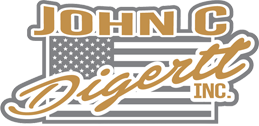Fuel Tank Inspection Services
Home » Products & Services » Fuel Handling and Storage » Fuel Tank Inspection Services
Fuel Tank Inspection and Maintenance Services
Fuel inspection services are essential for ensuring the safety and reliability of fuel storage tanks. These services can help to identify potential hazards, such as leaks, corrosion, and structural damage, before they lead to a spill or other incident.
There are a variety of fuel inspection services available, including:
- Visual inspections: These inspections involve a visual examination of the tank and its components, looking for signs of damage or corrosion.
- Non-destructive testing (NDT): These tests use non-destructive methods to inspect the tank for internal defects, such as cracks or voids.
- Pressure testing: This test involves pressurizing the tank to a specified level to ensure that it is structurally sound.
- Integrity testing: This test uses a variety of methods to assess the overall condition of the tank, including its structural integrity, corrosion resistance, and leak detection capabilities.
The frequency of fuel inspections will vary depending on the type of tank, the environment in which it is located, and the level of risk. However, most tanks should be inspected at least once every three years.
Types of Fuel Storage Tanks
 There are two main types of fuel tanks: underground storage tanks (USTs) and aboveground storage tanks (ASTs). USTs are typically buried underground, while ASTs are located above ground.
There are two main types of fuel tanks: underground storage tanks (USTs) and aboveground storage tanks (ASTs). USTs are typically buried underground, while ASTs are located above ground.
USTs are more common than ASTs, but they also pose a greater risk of environmental contamination in the event of a leak. ASTs are less likely to leak, but they are still a potential hazard if they are not properly maintained.
Fuel Inspection Regulations
The federal government and many state governments have regulations that govern the inspection and maintenance of fuel tanks. These regulations are designed to protect human health and the environment from the risks associated with fuel spills.
The most important federal regulation governing fuel tanks is the Spill Prevention, Control, and Countermeasure (SPCC) rule. The SPCC rule requires owners and operators of USTs to develop and implement a plan for preventing, detecting, and responding to spills.
The SPCC rule also requires owners and operators of ASTs to comply with certain design, construction, and maintenance requirements.
Connecticut Operators: Click here to learn about new regulations in your state.
The Benefits of Fuel Inspection Services
Fuel inspection services offer a number of benefits, including:
- Reduced risk of spills and leaks. By identifying and correcting potential hazards, fuel inspections can help to reduce the risk of spills and leaks.
- Improved tank integrity. Fuel inspections can help to identify and repair structural damage, which can improve the overall integrity of the tank and avoid tank failure.
- Increased compliance with regulations. By complying with the SPCC rule and other regulations, owners and operators of fuel tanks can help to protect human health and the environment.
- Peace of mind. By knowing that their fuel tanks are properly inspected and maintained, owners and operators can have peace of mind knowing that their tanks are safe.
Certified Inspectors
In order to ensure the quality of fuel inspections, many states require inspectors to be certified. The certification process typically involves completing a training program and passing an exam.
Digertt’s certified inspectors are familiar with the latest inspection standards and procedures, and we are qualified to identify and assess potential hazards. Working alongside our partners at MassTank, we facilitate annual tank maintenance and inspections as well as emergency repairs of water tanks, chemical storage as well as fuel oil tanks.
Conclusion
Fuel inspection and testing services are an essential part of ensuring the safety and reliability of fuel storage tanks. By identifying and correcting potential hazards, fuel inspections can help to prevent spills, leaks, and other incidents.
If you own or operate a fuel tank, it is important to have it inspected regularly by a qualified inspector. Digertt’s team can ensure that your tank is safe and that you are in compliance with the law. Contact us today or call 860-349-0468.
